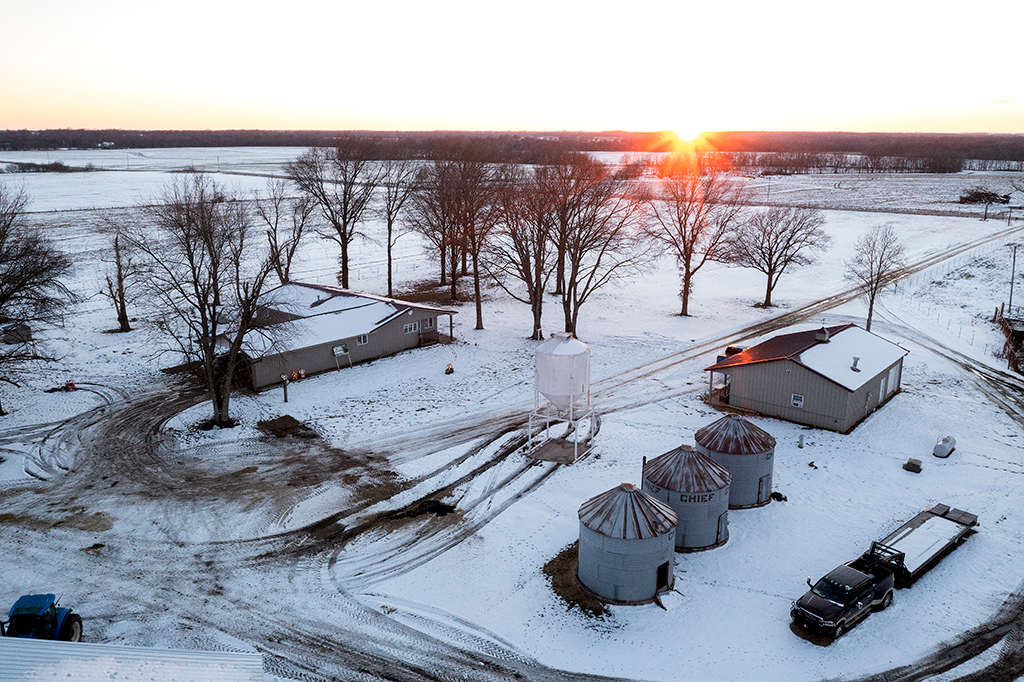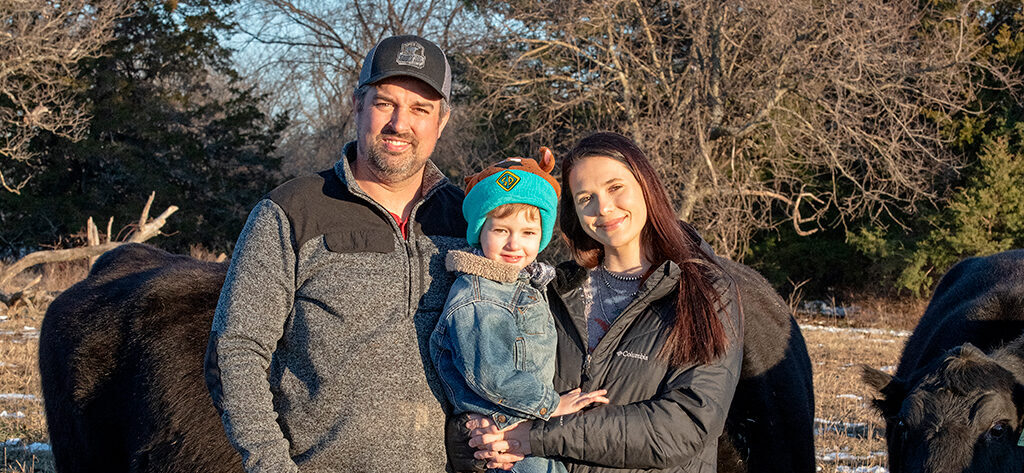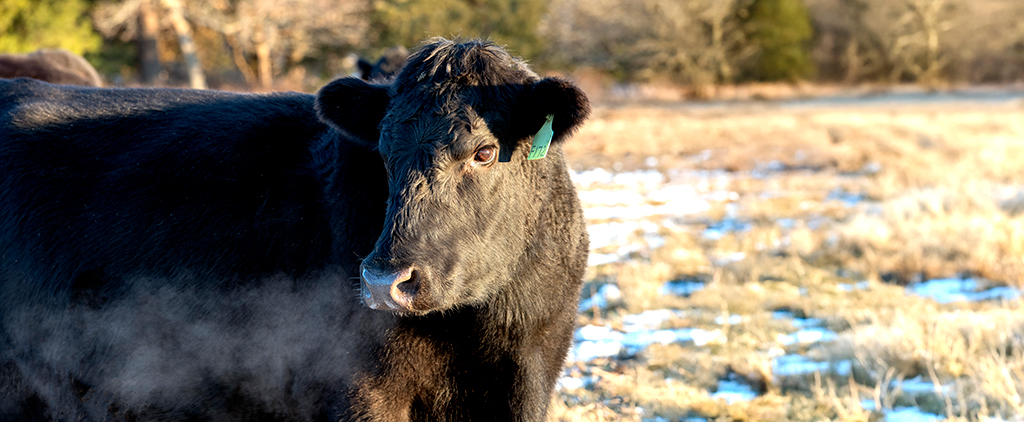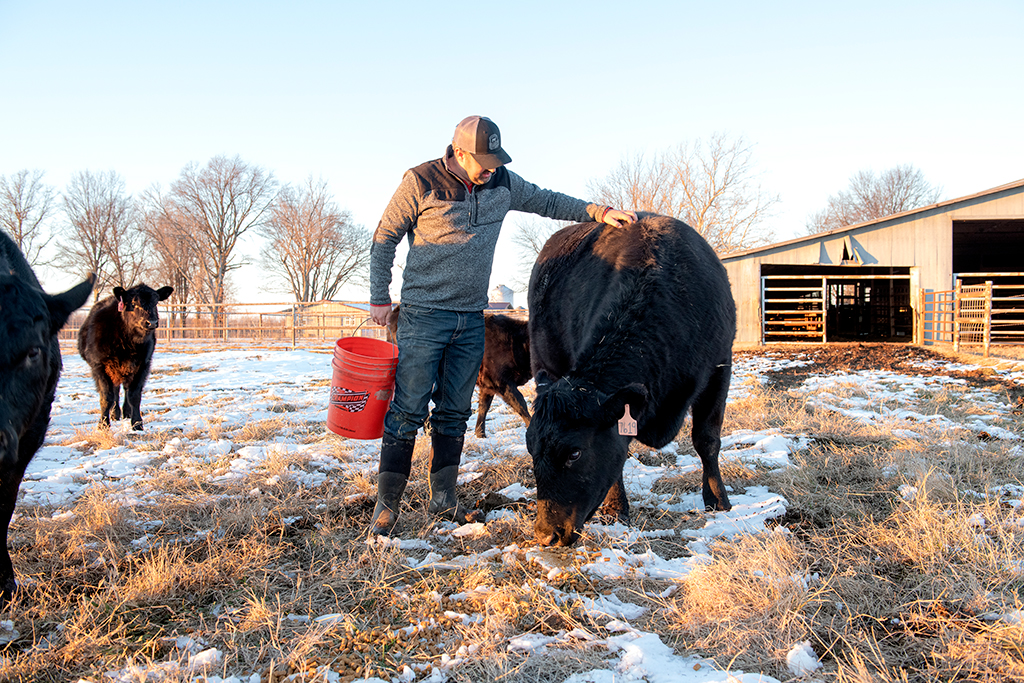
Angus Ambitions
February 25, 2025
Written By Jason Jenkins
Southwest Missouri Cattleman Honors His Grandfather’s Legacy While Taking the Family Herd to the Next Level
Building a solid reputation doesn’t happen overnight—especially in the registered cattle business. Yet over the course of more than six decades, Leon Kleeman developed bulls that earned the respect of Angus breeders well past his stomping grounds near Miller in southwest Missouri. He stayed true to his herdsman philosophies, working to improve the breed while maintaining its fundamentals.
Leon shared his passion for animal husbandry with his grandson, Traves Merrick, who joined the operation and worked alongside his grandfather until a fateful Tuesday in April 2022. While feeding his beloved animals, Leon fell, sustaining injuries that took his life at age 80 and left the legacy of Gleonda Angus Farms in his grandson’s hands.
“I’m trying to take everything he did and take it to the next level,” says Traves, who serves as herd manager for the family-owned operation. “I want to keep the fundamentals and the philosophies that we’ve always had. I take a lot of pride in seeing the next generation of cattle get better every time.”
Priority on Performance
Leon’s passion for Angus cattle was ignited when he was just eight years old and his father gave him an Angus-crossed bottle calf. He would go on to participate in 4-H and FFA, exhibiting steers at local shows. He sold those steers and used the proceeds to purchase his first Angus heifers while still in high school.
“It just evolved the more he got involved,” Traves says. “In those days, he traveled around the country fitting cattle for major shows and sales. He worked for Sam Barr at the Blue Sky Cattle Farm at Kearney. He even worked for J.C. Penney on his farm at Hamilton.”
In 1960, Leon officially established Gleonda Angus Farms, pronounced “Glee-on-da,” a name that combined his first name and that of his wife, Glenda.
“You won’t find another farm with that name, I can promise you that,” says Traves, acknowledging that the name often is mispronounced. “Sometimes, I wish we could change it, but it’s been established for too long.”
Leon was one of the first cattlemen to focus on performance testing, especially when it came to feed efficiency. Traves says that several of Missouri’s performance testing programs have roots at Gleonda, work that eventually led to Leon being recognized with the Pioneer Award from the Missouri Cattlemen’s Association, among other accolades.
“He tested a lot of bulls and was data driven before a lot of others,” he adds. “He wanted those pens of cattle to perform above average or earn that carcass merit without sacrificing everything else. It wasn’t just the straight marbling push like we see today. It was about balance. He taught me that your money is not made in your prime premium; it’s made on cost of gain and days on feed. We’re looking to produce low-input, high-output cattle for the cow/calf operator.”
This commitment to breeding better cattle continues today. In 2023, the farm purchased a C-Lock SmartFeed system, moving feed efficiency testing in-house and allowing Traves to be more hands-on with the cattle.
“I’m a control freak,” he says. “I don’t want to send these cattle to someone else for testing. I want to be able to walk them every day, gentle them down and watch them grow. I’m in control of their diet, and these smart feeders allow me to see how much they’re eating right down to the ounce.”
He adds that while he’s not yet used the data from the SmartFeed system to make culling choices on bulls, it has allowed him to identify some outliers within the herd.
“When we pick the bulls, I still use what Grandpa taught me. I’ve went back to the old school and start from the ground up,” the 38-year-old explains. “I’m looking at what the commercial producer needs. I’m looking at weaning weights and weight per day of age [and] foot structure correctness and disposition. I look at who their mother is. They’ve got to be able to walk, and they can’t want to kill you.”
While EPDs (expected progeny differences) dominate decision-making for many registered cattlemen, Traves says he combines such data with fundamentals.
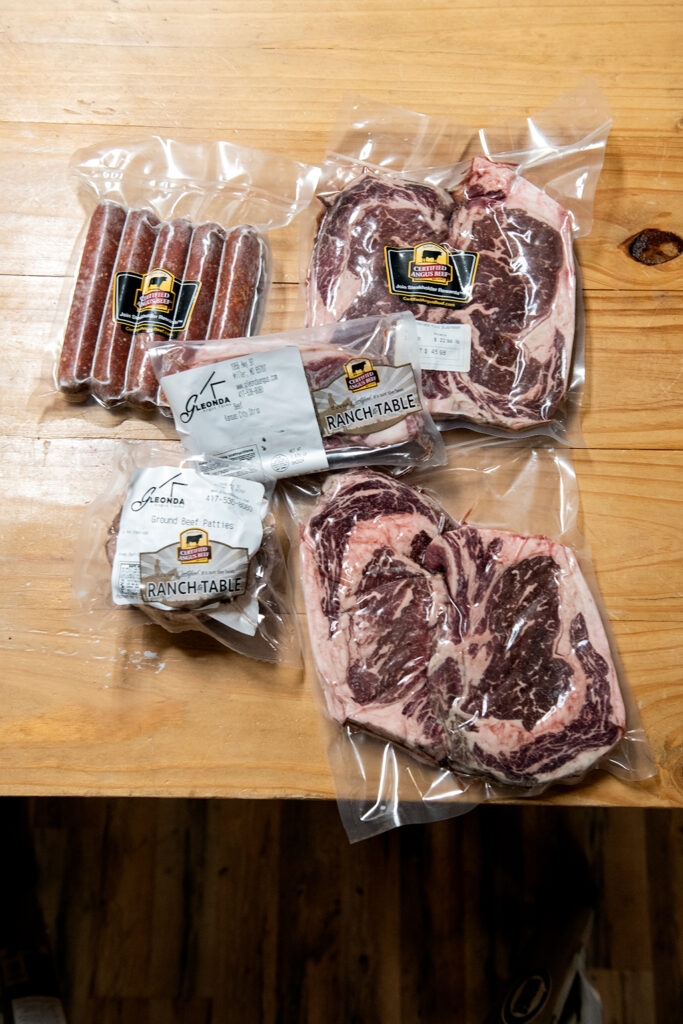
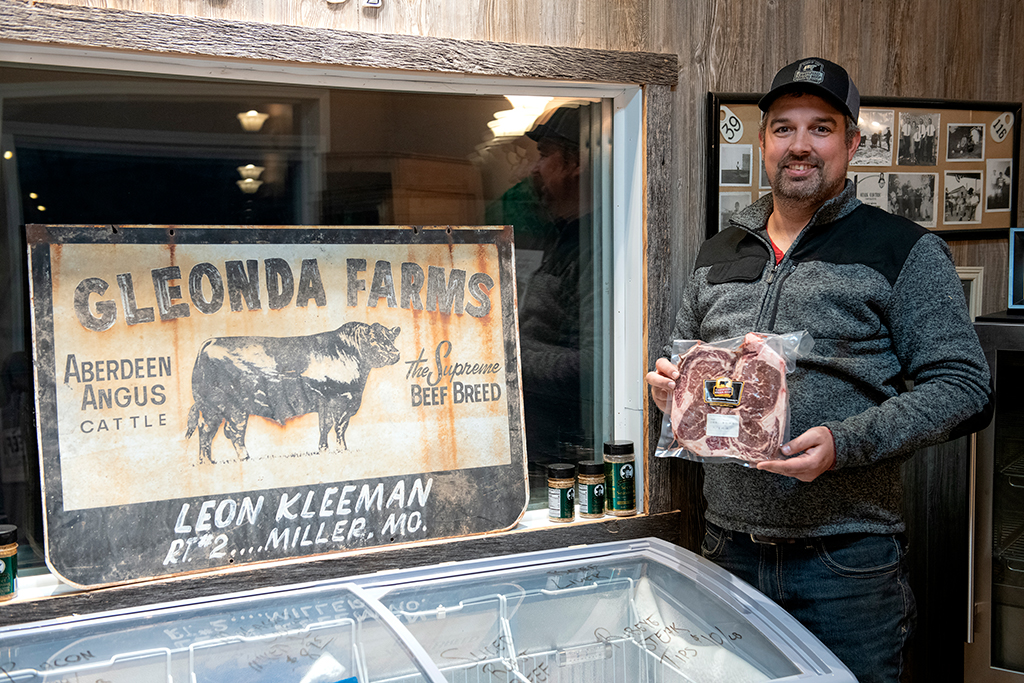
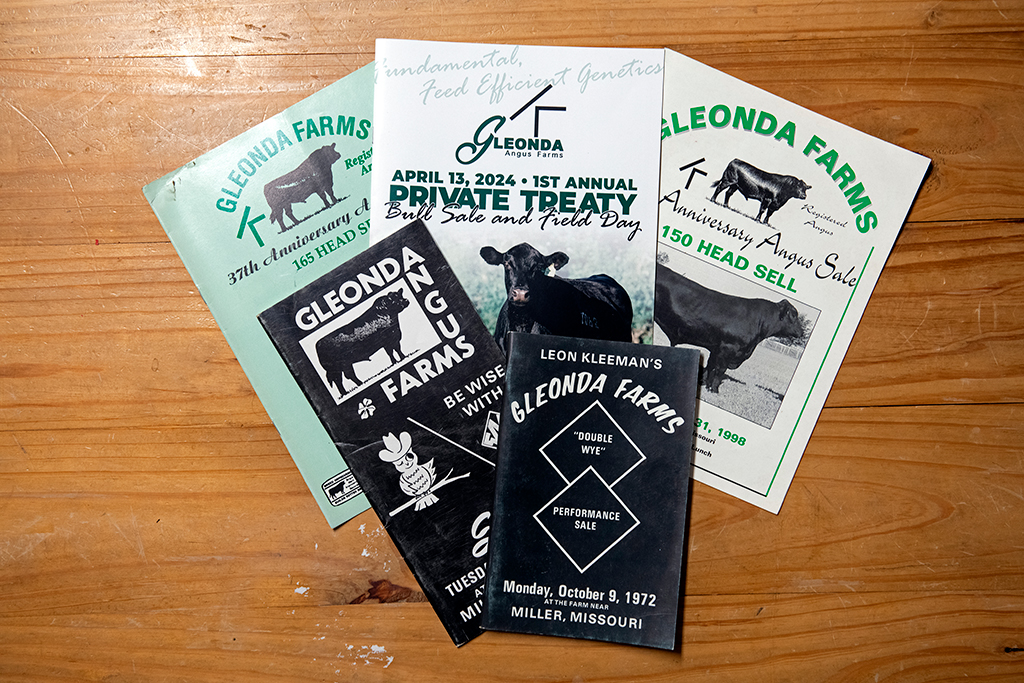
“A lot of commercial guys don’t understand the EPDs, or they just don’t care. They just want a calf on the ground,” he says. “So, instead of trying to push the top 1% higher and raise the ceiling, we’re looking to bring up the bottom and raise the floor. That’s why I’m trying to push more guys into looking at the feed efficiency because if they’re backgrounding for 45 to 60 days, that’s where that money is saved.”
Herd Dynamics
Entering 2025, the herd at Gleonda Angus Farms is composed of about 225 cows, including 75 heifers. Calving occurs in both the spring and fall, though the herd is not split evenly.
“We artificially inseminate (AI) everyone because it allows us to have a much tighter calving season,” Traves says. “It gives us much more uniformity on the cows and makes picking bulls and heifers a lot easier. We moved up breeding the heifers so that they’re done calving before the cows start. That way, I’m not babysitting heifers and cows at the same time.”
In 2024, the farm held its first sale since Leon’s death. Traves says they weren’t sure what to expect, so they structured it as a private treaty sale rather than an auction.
“We ended up with twice as many people as we expected,” he says. “And the bulls averaged about $1,500 more than I would’ve priced them. So, we’re going to do it again this year, but we’ll have an auctioneer. We’ll have about 30 bulls available. My top three are getting interest from buyers from Alabama to Minnesota. Around here, the steers pay the bills, and the bulls are the profit.”
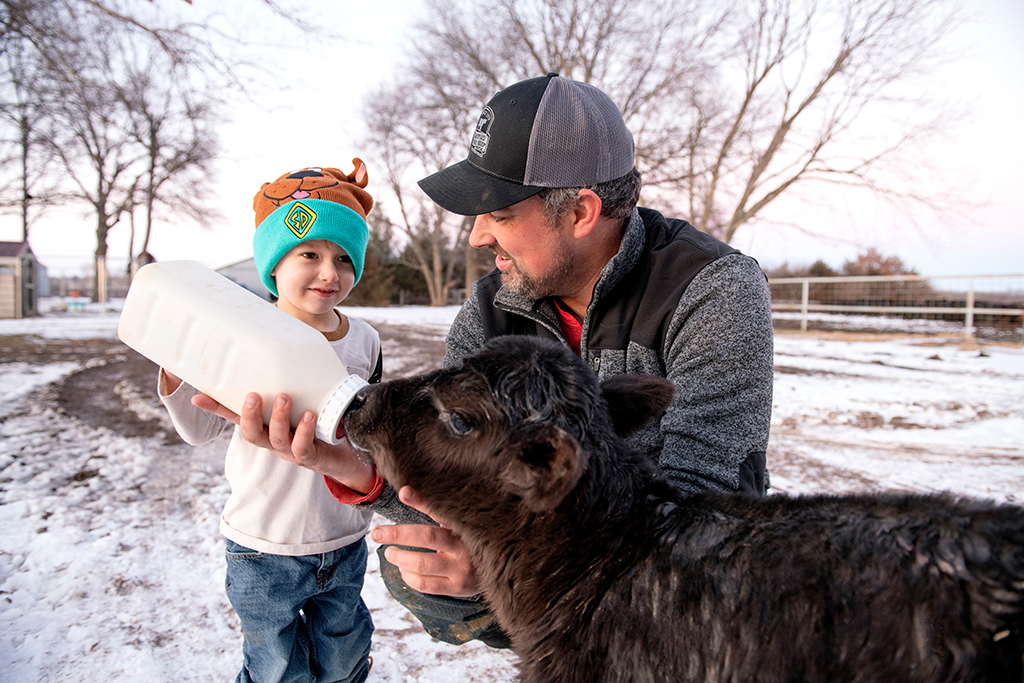
From Farm to Table
While the family had shared beef with family and friends for years, it wasn’t until 2018 that they began selling retail steaks and hamburger off the farm. Traves said that initially, the idea was to have a little meat shop and family museum chronicling the history of Gleonda Angus.
“So, we bought a few cheap freezers and started with a couple of beefs,” he says. “But then COVID hit in 2020, and everybody started selling farm-to-table beef. We needed a way to set ourselves apart.”
They decided to begin offering Certified Angus Beef (CAB)-brand products, but at the time, that meant excluding their own farm-raised Angus beef because there wasn’t a way to have it certified. That changed in 2023 when CAB launched its Ranch to Table program.
“Now, working with our local packinghouse, we can get our beef inspected, graded and labeled as Certified Angus Beef,” Traves explains. “Our beef has to meet the same 10 quality standards as any other certified product. It’s really put us above and beyond what others with farm-to-table around here can offer.”
In addition to beef products, the meat shop at Gleonda Angus offers locally raised pork. A couple of Saturdays a month, they offer brisket or burnt ends for sale at the Miller Lions Club’s bingo night.
“We’re also working on our own barbecue sauce, teriyaki sauce and hopefully some seasonings down the road,” Traves adds.
Looking to the future, Traves and his wife, Kenadee, hope to continue the Angus legacy that his grandparents started and provide an opportunity for the next generation, which includes his sons, 9-year-old Gus and 3-year-old Denver.
“We’re trying to forge our own path without completely changing how we do things,” Traves says. “We want to make sure that what Grandpa built doesn’t go away.”
The next Gleonda Angus Farms Bull Sale is scheduled for April 12, 2025. For more information, call Traves at 417-536-8080 or visit www.gleondaangus.com.



